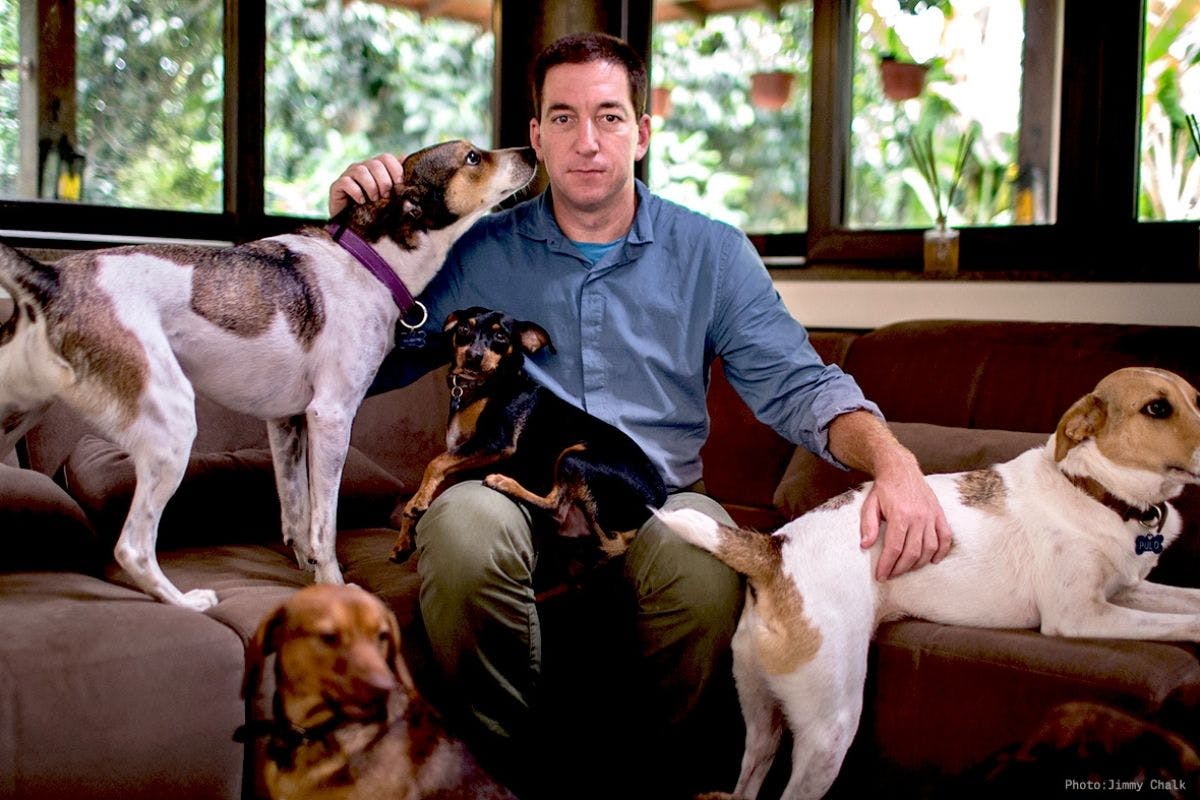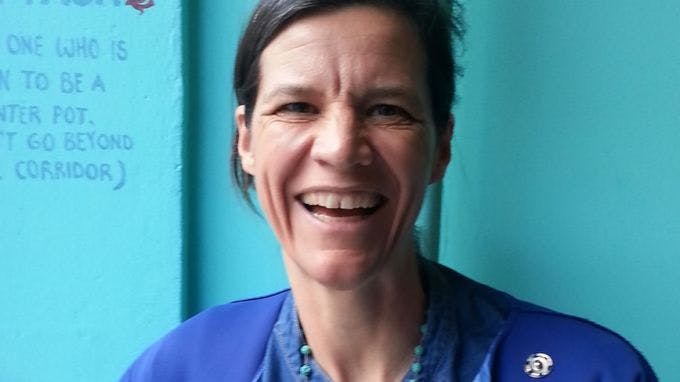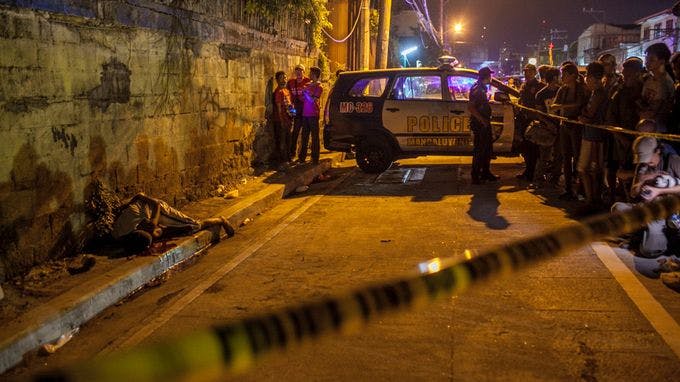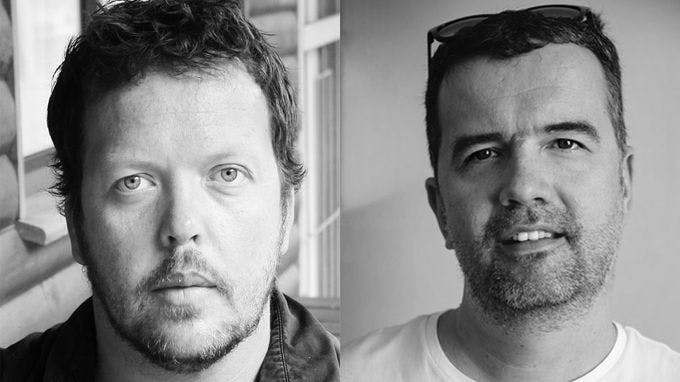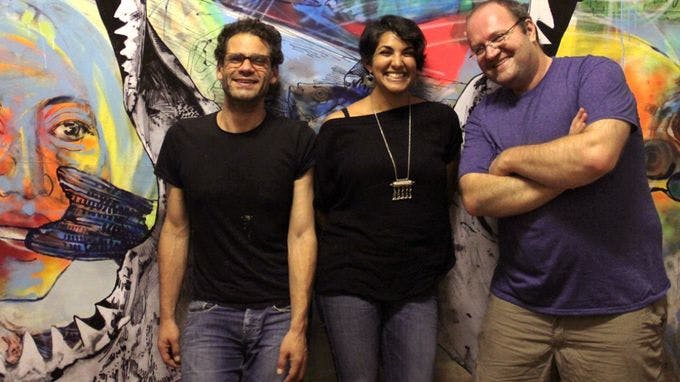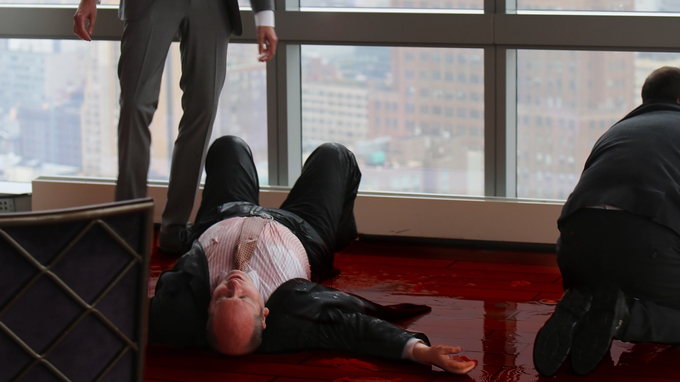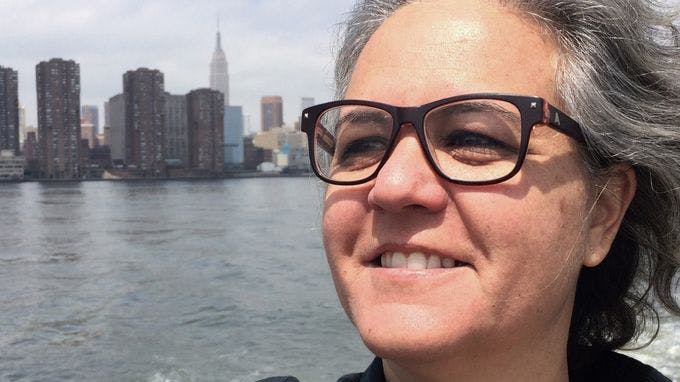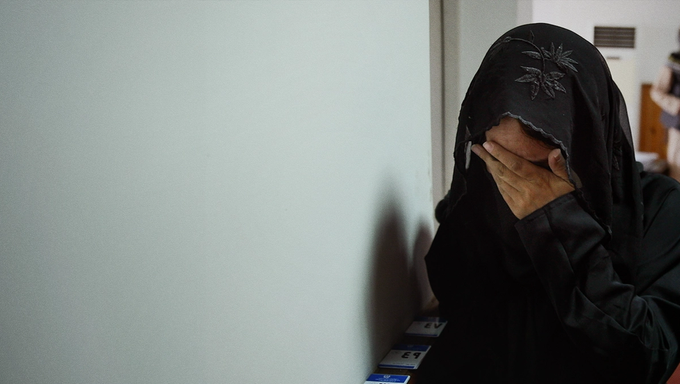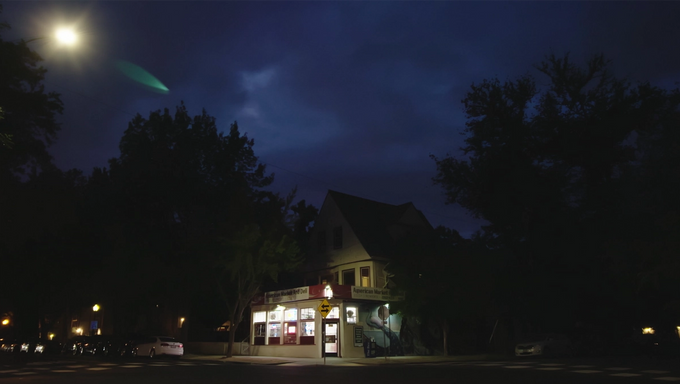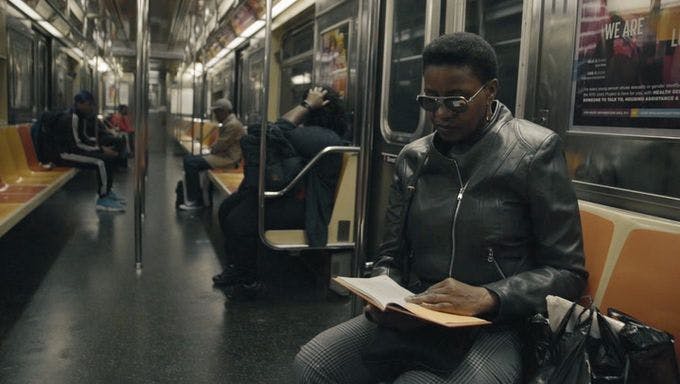From his home in Rio de Janeiro, The Intercept’s Glenn Greenwald writes extensively on international politics. But as any viewer of the Academy Award-winning documentary Citizenfour can attest, he shares that home in Rio with a host of dogs. In fact, though the film follows Greenwald to Hong Kong to meet NSA whistleblower Edward Snowden, and tracks the reverberations of Snowden’s revelations in the ensuing weeks and months — the first characters we encounter are a few handsome hounds lounging in Greenwald’s living room. According to Greenwald, he and his partner have 16 dogs at the moment — the total tends to fluctuate. “We count two of them as foster dogs, but a lot of times that’s just a conceit. We’ve called them foster dogs and then gotten attached to them and don’t give them away,” he says via phone from Brazil. As his recent stories for The Intercept explore — along with Heloisa Passos’ companion films for Field of Vision, Birdie and Karollyne, which Greenwald co-produced — Greenwald’s impulse to care for wayward animals is shared by Rio’s homeless population. In the following conversation, he talks about what led him to examine this emotionally provocative phenomenon, as well as what might be gained through the partnership of written and film reportage.
Were these stories about the homeless and their pets an outgrowth of your own relationships with dogs?
Greenwald: Since I work at home, I’m just around them all the time. My relationship to dogs is a really central, crucial part of my life, and that’s made me think a lot about what that relationship is and what each party to that relationship receives — not just materially and psychologically, but emotionally. So once I started focusing on the way in which homeless people seemed to have what I would call a singular, particularly bonded relationship with dogs — obviously my own relationship with dogs is a prism through which I started thinking about that.
You talk in the story about how homeless people often feel unseen, yet the fact that their dogs are more readily acknowledged actually leads to owners being and feeling seen. Was that your way into seeing them as well?
Greenwald: Definitely. My first assumption when I first started seeing homeless people on the street panhandling with dogs was that it was just a prop used to generate increased sympathy. And part of the reason I assumed that was because it worked for me — I would be more kind and stop and reach into my pocket and give money if I thought this homeless person was caring for a dog. So of course once you see a dog on the street that seems to have a medical problem or is in distress or seems thin, you obviously can’t talk to the dog; you have to talk to the person caring for the dog about how you can help. And that process of having to actually talk to another human being who otherwise you’d be inclined not to talk to starts opening you up to looking at the reality of who they are and seeing their humanness. I think if you have any empathy at all it just starts making you bond with those people, because what you ultimately realize is that my relationship with my dogs is extremely similar to their relationship to theirs.
As journalists, a big part of our job is finding some sort of ground on which to talk to people — that’s how we get information. Yet there’s still a hesitation regarding homeless people, a wall to get past.
Greenwald: In your interview with Kirsten Johnson [director of The Above, a film about a U.S. military surveillance blimp tethered above Kabul], she actually talked about that in a way that I thought was really interesting. She was saying how you go to Afghanistan and you think you’re going to be this invisible fly on the wall, that you’re just going to kind of blend in, but of course your life is so radically different than the people with whom you’re interacting, and you have to be cognizant of the difference and not pretend it doesn’t exist because that’s part of what’s shaping the reality, right?
Even among the homeless people I know best and who know me — we live, to some extent, in different worlds, and there is inherently a big gulf between my perspective and experience and theirs. They’re aware of that and I’m aware of it, and it is important to not delude yourself into thinking otherwise. But at the same time you can actually find common ground — genuinely common ground — so that those differences, while not becoming eliminated entirely, become minimized. And that takes work, but I think it’s crucial to be able to reach an empathetic state with somebody else.
How did you find your way into Karollyne’s community?
Greenwald: It was pretty random at first. Because in big cities … Do you live in a major city?
Yes, New York.
Greenwald: One thing that’s always struck me about New York is it’s this massive, sprawling city with millions of people, but you kind of end up living in the same few square blocks. It’s almost like you’re in a village — you go to the same convenience store, you go to the same supermarket, you go to the same restaurants, you see the same waiters, the same people. Here in Rio, when I would see homeless people with their dogs repeatedly, I began to feel increasingly uncomfortable about ignoring their existence. Like, oh, there’s that same guy with the same two dogs.
Now, the encampment where [Karollyne and others] live is about six or seven minutes from my house. I live on this mountain in the forest in the middle of the city, and they’re my neighbors, basically. I would pass by there all the time and I had no idea what it was, but I always noticed a large number of dogs out front. Sometimes it’d be the same ones, sometimes it’d be different ones. It was clear that they were homeless just because of how free they were walking around, with no collar, no leash, no home. But I always noticed they were incredibly well cared for, because if I see a dog on the street I always look to see if they’re emaciated or sick or whatever, and that’s when I’ll stop. But these dogs were robust and healthy, and it was always so confusing to me. Occasionally I would see humans with them, and at some point I started realizing that it was a group of five or six people. I started thinking that this almost seems like a collective of homeless people taking care of a large number of dogs together. But I never really penetrated it, and I never really tried all that much, because I never knew what it was — it was always kind of confounding.
Then once we started working on this film, and started talking about who we wanted to focus on, I told Heloisa [about it] and she said, “Let’s just go there and poke around and see what we can find.” And that’s when we talked to a couple of them and they invited us behind the wall. The thing that’s so fascinating is that, for all of them, caring for these animals is their lives. When they talk about their animals they get super animated — they’ll tell you about every last personality and behavioral trait of one of their dogs. They’re super devoted to it.
Where do all these dogs come from?
Greenwald: The reason they have so many dogs — and the reason we have so many — is that the forest we live in is the place that people go when they want to abandon their dogs, because they can drop them out of a car and no one sees them. They must think that they’ll be able to survive better because they’re in the forest, where they won’t get hit by cars — which isn’t true. There are so many abandoned dogs here, not dogs that are born into homelessness but dogs that were at one point domesticated but then got dumped. And those dogs can’t fend for themselves. So you have this group of homeless people who are dirt fucking poor, who literally don’t know where their next meal is coming from, who have this moral indignation about how unethical and immoral it is that these bourgeois, middle-class and rich people come in their cars and drop their dogs off. And they sacrifice their lives to pick up the responsibility that those other people have breached.
Morality gets completely inverted because it’s usually they who are being judged and condemned, but it’s totally the reverse. Now it’s always been my childhood dream to live in a forest or on a farm and just take care of animals, and we’re basically doing that, and they’re doing it five minutes away from us. We’re doing exactly the same thing for exactly the same reasons and exactly the same emotion, except they’re homeless and indigent and we’re not.
So how do you process and accept that? If you live in such a different economic situation but have common ground with them, and if you support what they’re doing for the animals, what gives? Does something still need to change?
Greenwald: It’s really complicated. On the one hand, I think that there’s a temptation or tendency to want to idealize poverty and homelessness if you’re not in it, because you get to feel better about it. Like, “Oh, they’re freer and they’re not chained to a desk and their lives aren’t all mucked up with this extraneous bullshit. They get to focus on human relationships and their internal life and their relationships with their dogs.” And there is some truth to it. I spent a lot of time with them, and they don’t have this “woe is me, my life is dark and dank and miserable” that a lot of people on the street do. They have kind of made the best of it. It’s not a house that they have, but it’s a structure and they’ve set it up like a home. And they do seem really fulfilled to me.
But that’s easy for me to say, right? Because I’m not worried about where I’m getting dinner, or scrounging in garbage cans for food, or relying on the kindness of strangers, who may or may not come through at any moment. There are all of these programs to help unemployed people, or to help the homeless, and there are all these other programs to help animals, like shelters and funds — but this is actually a fusion of both causes. If you can create a template where you can raise money for homeless people who love animals, to have that be their job, their purpose, you’re not only improving their lives, but also the lives of all the animals for whom they’re caring. That’s the template they’ve created and so we’ve started to formalize how we’re working with them and how we’re helping them. There is something really qualitative about it — the way their lives are filled with love and affection and empathy and concern and caregiving, and it’s mutual. If you could bottle and capture it the right way, it could be really powerful.
Was it your idea to bring the film component in? How do you see it working alongside your own reporting?
Greenwald: From the start [with The Intercept], the question was how can we merge written journalism with visual journalism in order to make it all more compelling? Laura [Poitras] is over here making films, and Jeremy Scahill and I are over here writing articles — we’re doing them in the same room but not together. We wanted to figure out how to make each other’s work more potent. I’ve been thinking for a while about this issue of the relationship between dogs and the homeless, and realized pretty early on that words could never do it justice, that you could never do something like this without there being a visual component to it.
So I went to Laura and told her what I wanted to do, and she happens to know Heloisa who’s a really accomplished filmmaker. She did some of the cinematography work on Citizenfour in Brazil, filming me when I went to the airport to pick up my partner when he had been released from detention, and other scenes in Rio that involved me. So I told her my vision for the film, what I wanted to achieve from it, and she kind of took it and did her thing with it. She went and scouted, and I went and scouted. And she found Birdie and I found the camp.
How did it affect your reporting and writing, knowing that this film was going to be made?
Greenwald: It’s such a huge luxury, but also makes it harder in a way that’s really great. Imagine if there had been no film. So much of what I wrote would had to have been factual exposition. Like — this guy is Birdie, here’s why his name is Birdie, here’s his experiences, here’s why he went to prison, here’s where he works and sleeps, here’s how he makes money, and here’s a zillion quotes from him describing his life. There’s so much factual explanation just to get people to know who this is, that I really wouldn’t have had all that much room, mental or physical room, to do the kind of deep dive contemplation or meditation on what the relationship is, and what the significance is.
But because there was a film that showed all of that so much better than I ever could have described it, I was completely liberated from that exposition. That left me to reflect on why this moves me, and why I think this is so thought provoking. And that’s much harder writing, because you’re writing from a place of emotion and psychological reflection, and it’s a much more vulnerable place from which to write, especially if you’re not accustomed to doing it. I’m usually writing political polemics that are hard charging and factual and rational. So it was very challenging, but I think what I ended up writing was so much better because the film did so much of the important reporting work.
As you said, film can do some things better, but a lot of it you could do, it just has a different effect. It almost seems to throw into relief the assets of each form.
Greenwald: [Before this], I wrote a book and Laura made a film about very similar events — which was the meetings we had in Hong Kong with Snowden, and what preceded it and what came from it. There was a time very early on when we were going to release the film and the book jointly — so that we weren’t rushing to beat the other person, and out of fear that one would make the other redundant. But what we realized really quickly was that there was no chance of that — even though so much of what we were doing was similar in terms topic and the event — that the book was going to create a thought process about all of it that was different from what the film would produce. If anything, they would complement each other. And that is what excited me about what we’re working on now with The Intercept and Field of Vision. Because you’re right, it’s not that the film did something that the written word couldn’t do, but it does it differently. Maybe it addresses different parts of your brain. Maybe you interact with things differently in visual form than in written form. It’s almost like the difference between watching a film in two dimensions or three dimensions.
In both these films and your written reporting, the emotional lives of dogs are being respected alongside the lives of the people. Yet there’s always a limit to what you can learn as a journalist because you can’t talk to them. You can’t interview them the way you normally would. How do you deal with and factor in that limitation?
Greenwald: I think a huge amount of humility is required if you’re going to do this right. First of all, there’s a huge hazard — which is that dogs are a really effective tool for manipulating other people’s emotions. It’s really easy to appeal to all the clichés that humans have about dogs. So obviously we wanted to avoid that. And look — there’s an enormous amount that we don’t know about this relationship because we can’t fully understand dogs. I guess you could look at it and say, well, the fact there’s so much of it that’s inscrutable is something that makes the topic less valuable. But for me, it makes it so much more valuable. That’s probably why I value my relationships with my dogs more than anything else, because I know that they perceive and sense things and process things in a way that’s completely different than I do, and that I can’t actually fully access.
So the process of my trying to learn about how they perceive the world and respond to it is incredibly educational. It’s almost like moving to a different country — the way you think about cultural and language things differently when you do that. So this being shares some common perspectives with you, but in other ways has totally different faculties that you just have to accept that you can’t access. There are some things we can know and other things that we can’t. And in the things we can’t know — that’s the most profound area.
